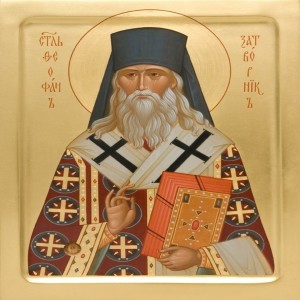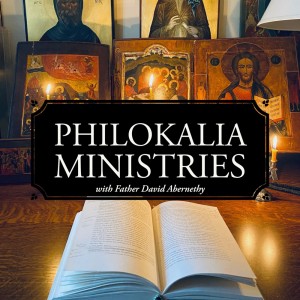
We continued our reading of St. Theophan’s discussion with the young Anastasia about to Govenie; the entrance into the holy season of Lent - when men and women would often take off an entire week of work so as to enter into their spiritual disciplines with zeal and focus.
Tonight, he began by asking her “how does one pray at home after having returned from church?” It is necessary, he tells her, to prolong the attitude and spirit of prayer. One must not be given over to distractions but immediately enter into solitude in one’s room where one can continue to read prayers, pray for one’s own most vital needs to God, as well as making physical prostrations to humble oneself before Him.
Essentially St. Theophan is telling Anastasia not to take her mind off of God at all. Even when she becomes physically tired she should take up some physical handicraft so that her mind does not drift into daydreaming. She is to read devotional books by herself or with others. She is to avoid idle conversation so as not to become dissipated. She is to remind the body that it is the source of the need for repentance. Thus, she is to discipline herself in regards to food and sleep. Anastasia must accustom herself to and find the right measure of discipline in order that she may maintain this zeal throughout the entire course of the Lenten season.
----
Text of chat during the group:
00:45:05 Fr. John (Ivan) Chirovsky: re: pg. 141: in the Russian practice of the Byzantine Rite, the "All-Night Vigil" is a technical term, translating the Old Church Slavonic term Vsenochnoye, and referring to Vespers and Matins being served together as one long about four hours liturgical worship service, mostly on Saturday evenings or the eve of a Feast. If one does not go to church to "hear" it one would pray it in one's home, provided you had the books and could read Old Church Slavonic. And so St. Theophan says that Matins is "heard" in the evening. In the USA, among Ukrainians and Greeks (Melkite Catholics as well as Greek Orthodox and Antiochene Orthodox) and Ruthenian Catholics, I think as well, Matins (if it is served) would occur in the morning, while Vespers would occur on the previous evening.
00:45:06 Scott: The group I knew turned in at around 8, i think?. So it's 8-2:30 sleep (6.5 hours?)?
00:45:39 Scott: (My comment is about some Romans, not Fr's comment)
00:58:02 Eric Ash: My understanding is before the widespread use of electric lightbulbs many people's natural sleep cycles included sleeping a bit earlier and waking for an hour to two in the middle of the night. Sometimes it was referred to as second sleep
01:02:42 Fr. John (Ivan) Chirovsky: St Theophan is well known for describing the third and highest degree of prayer as "the mind resting in the heart" and so his advice on pg. 141 that "one must read a little, but each item that is read must be brought to conscious feeling by devoting lengthy attention to it" is a more common way of stating the same principle
01:23:04 Fr. John (Ivan) Chirovsky: Govenie as used on pg. 142 can also be translated as a "retreat", esp. as it refers to the use of govenie in the first week of the Great Fast (Lent)
More Episodes
 2024-11-06
2024-11-06
 197
197
 2024-10-30
2024-10-30
 440
440
 2024-10-28
2024-10-28
 378
378
 2024-10-23
2024-10-23
 444
444
 2024-10-23
2024-10-23
 378
378
 2024-10-16
2024-10-16
 489
489
 2024-09-23
2024-09-23
 645
645
 2024-09-18
2024-09-18
 592
592
 2024-09-16
2024-09-16
 486
486
 2024-09-11
2024-09-11
 560
560
 2024-09-10
2024-09-10
 473
473
 2024-08-28
2024-08-28
 653
653
 2024-08-26
2024-08-26
 505
505
 2024-08-21
2024-08-21
 563
563
 2024-08-19
2024-08-19
 488
488
 2024-08-14
2024-08-14
 618
618
 2024-08-12
2024-08-12
 516
516
Create your
podcast in
minutes
- Full-featured podcast site
- Unlimited storage and bandwidth
- Comprehensive podcast stats
- Distribute to Apple Podcasts, Spotify, and more
- Make money with your podcast
It is Free
- Privacy Policy
- Cookie Policy
- Terms of Use
- Consent Preferences
- Copyright © 2015-2024 Podbean.com




